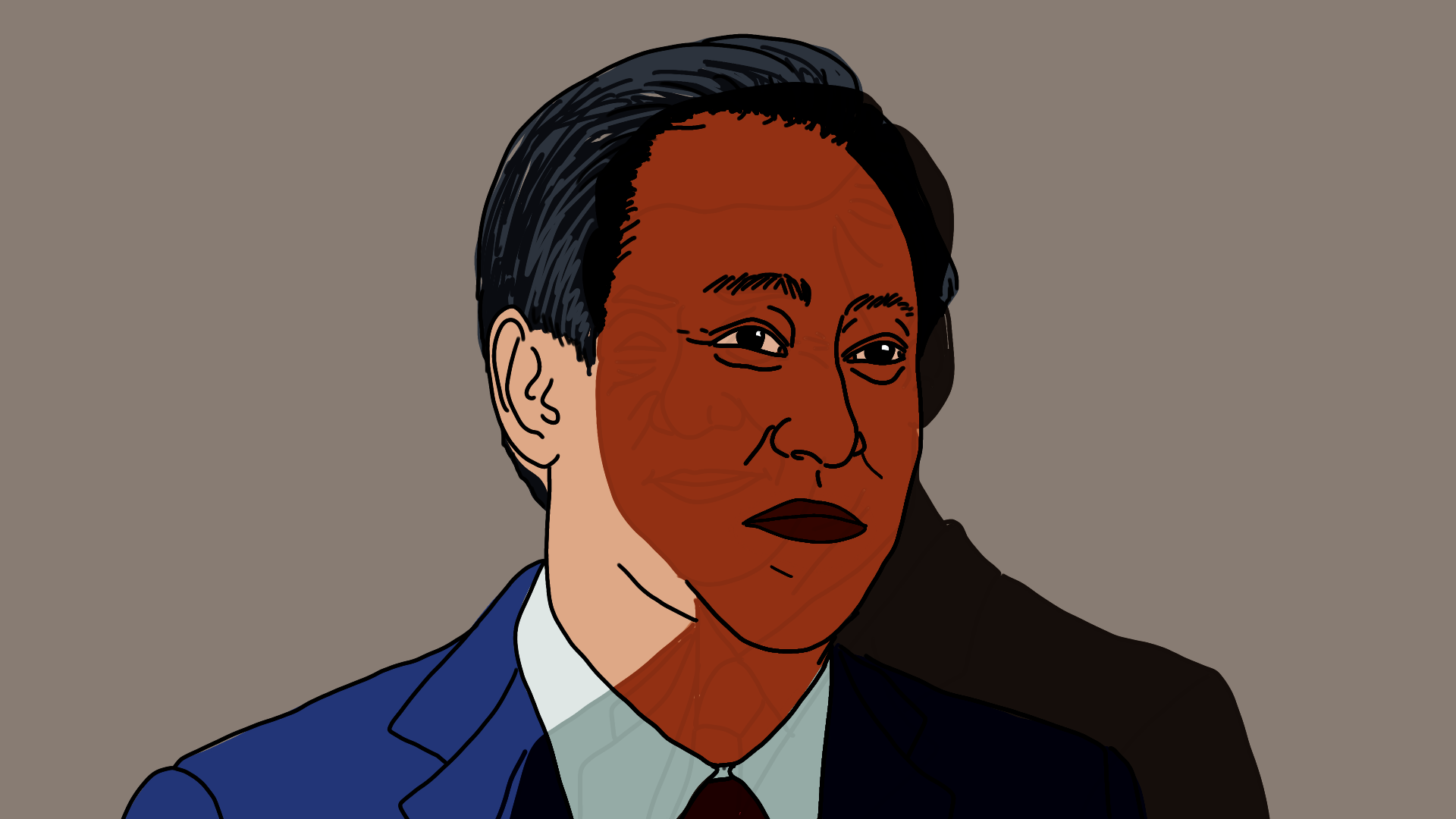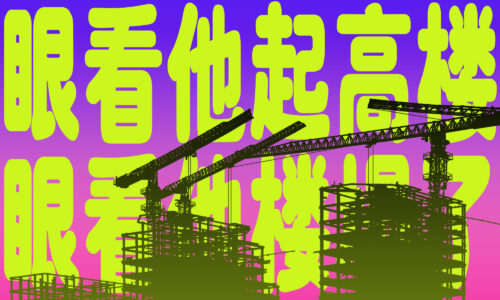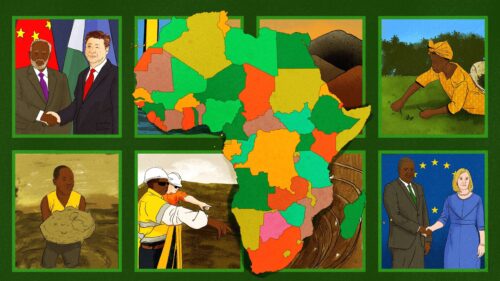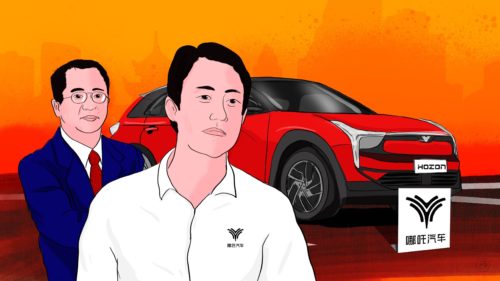For China’s annual legislative conference, known as the “Two Sessions,” in 2012, Xǔ Jiāyìn 许家印 wore a black suit strapped with the gold-buckled belt of the French luxury label Hermès — the priciest belt for the largest Communist gathering in the world. By the end of the day, Xu had acquired internet stardom, along with the catchy nickname, “belt brother.”
Back when his sartorial swagger could still elicit amusement in the press, Xu — who likes to use the Hong Kong Cantonese romanization of his name, Hui Ka Yan — was the poster child of China’s new “crazy rich.” The founder of Evergrande, China’s largest property developer, and at several points China’s richest man, Xu represented just how far the Party had come since market reforms began under Deng Xiaoping. His place at the meeting — as a member of the Chinese People’s Political Consultative Conference (CPPCC) — was a byproduct of the Party’s welcoming of entrepreneurs to its ranks orchestrated by Jiang Zemin starting in 2001.
Now, faced with a government crackdown on inequality, President Xi Jinping’s “common prosperity” campaign, and a housing crunch, Xu is battling to save his conglomerate from the edge of ruin. Evergrande now faces a $300 billion debt burden that has crushed its credit rating, its share price, and reputation. The property giant is in talks for a major restructuring and some have declared it “China’s Lehman Brothers,” which may be about to spark a financial crisis.
Xu Jiayin’s story mirrors the ups and downs of a changing China, first under Deng and now under Xi. If Xu’s ascent from rural poverty to real estate mogul owes much to the Party, then his downfall has roots in the Party’s u-turn: a rebuke of capitalists, the moneyed class, and the Party officials that helped developers thrive.
From rural poverty to robber baron with red connections
Born in a rural village in Henan Province in 1958, Xu lived his early years in poverty. His father was a warehouse worker and a veteran of the Chinese Civil War. His mother died when he was eight months old. Raised by his grandparents, Xu worked at a steel mill in southern China in his twenties and rose up through the ranks to become the plant’s general manager.
In 1992, Deng Xiaoping visited Shenzhen as part of his historic Southern Tour to revive economic reforms. That year, at least 100,000 middle managers from state-owned companies made the leap into entrepreneurship, and Xu decided to join them. “I felt trapped on all sides,” he recalled of his old job (in Chinese), “and, deep down, I knew I wanted to get out and wander.” He quit his job and moved to Shenzhen, trying his luck as a salesman in a steel conglomerate.
In 1996, Xu founded Evergrande Group (恒大集团 héngdà jítuán) in Shenzhen, riding the commercial real estate wave from the very beginning. His first big break came in 1997, when he bought a tract of land from an old pesticide factory and redeveloped it into Jinbi Garden, now a luxurious residential playground for Guangdong’s affluent. In 2008, Evergrande went public in Hong Kong, and in 2017, Xu became the wealthiest man in China, according to Forbes. (He was again named wealthiest man in China in 2019, by the Hurun rich list.)
Xu seems to have developed an expensive palate along the path to fortune. In 2014, the billionaire famously flew his private jet to shop for villas in Australia and New Zealand. Xu also figures in Desmond Shum’s new book, Red Roulette, flying his private jet to Paris empty because he wanted to play cards with friends in another jet. At another point, he contemplates the purchase of a $100 million yacht. (According to the SuperYachtFan website, Xu already owns a $60 million yacht.) Recent reports (in Chinese) also claim that Xu only eats imported fruits such as “Japanese honeydew and grapes.”
Developers, in the words of journalist Zha Jianying, are akin to “China’s robber barons, men who have taken advantage of the muddled transition to capitalism by means of guanxi (connections), bribery, and fraud.” And Xu was no exception. In his memoir, Shum details an exchange between Xu and Shum’s ex-wife, the power broker Whitney Duan (段伟红 Duàn Wěihóng) in which Xu tries to buy Duan’s access with a million-dollar ring. “Xu’s technique for winning over connections was…more bald-faced than ours,” Shum notes, one that involved “giving outrageously expensive gifts.”
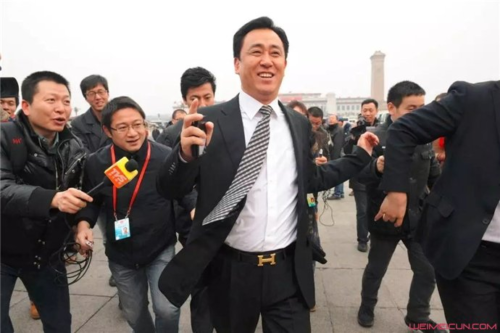
Xu’s exorbitant bribes evidently worked. He is reportedly good friends with the brother of the former premier Wēn Jiābǎo 温家宝, who purchased a 16% stake in Evergrande in 2001 and served as its director. Xu is also well connected with the family of Zēng Qìnghóng 曾庆红, a former vice president and advisor of Jiang Zemin, both members of the CCP’s “Shanghai clique.” In 2014, during Xi’s first term in office, Xu made international news when he bought a $39 million villa next to Zeng’s son, Zēng Wěi 曾伟, in Point Piper, Australia’s wealthiest suburb. In one memorable account, reporters found that Xu had lent Zeng his villa while his own, which he bought for $23 million in 2008 while his father was still vice president, was being refurbished.
The freewheeling days are over
The high-rolling decade ended with Xi Jinping’s ascent to power in 2012: Delegates to political meetings in expensive clothes vanished from social media; the rich began to retreat from the public eye; and the powerful “Shanghai clique,” long a political bastion for business elites, had come under heavy fire. Whitney Duan, whom Xu had tried to inveigle, was detained in 2017 and is still held in unknown circumstances. In 2012, a scandal that implicated Zeng Qinghong weakened the power of Jiang’s network and fueled Xi’s scorching anti-corruption campaign, one that has so far felled 1.5 million officials, seven national leaders, and two dozen generals.
“The whole freewheeling Jiang Zemin way of the world is gone,” Richard McGregor, author of The Party: The Secret World of China’s Communist Rulers, told me. “We’re in different parameters and values now.”
China news, weekly.
Sign up for The China Project’s weekly newsletter, our free roundup of the most important China stories.
The expulsion of Jiang’s clique corresponded to changes in the real estate business: officials became more cautious of backdoor dealings with developers, slowing sales of lucrative plots; creditors became less trusting of well-connected developers; and a climate of hostility engulfed developers, from the 18-year imprisonment of real estate mogul Rén Zhìqiáng 任志强 to social media invectives against Soho China’s famous power couple, Pān Shíyì 潘石屹 and Zhāng Xīn 张欣. For Xu, the penalty was double: not only was the modus operandi of real estate changing systematically, but his association with the wrong faction could have exacerbated any changes.
A leak about hotel decadence preceding the fall from grace?
If the anti-corruption campaign attacked the unwritten rules of Chinese real estate, Xi’s nascent “common prosperity” campaign aims to transform the country’s financial system, which facilitated the rise of real estate barons like Xu. “If we don’t structurally transform the economy and instead just stimulate it to generate short-term growth, then we’re taxing our future,” he said in a speech (in Chinese) at the beginning of 2016. The campaign to rein in unruly debt ramped up in 2020 when, in an effort to cool China’s red-hot real estate sector, regulators imposed “three red lines,” which capped borrowing and forced developers to offload properties at increasingly steep discounts.
Last November, the People’s Bank of China released a major report (in Chinese) aimed at stabilizing leverage and “holding the bottom line of no systemic financial risk.”
Since then, Evergrande has faced a cascade of liquidity problems as borrowing became harder and homebuyers became more reluctant to hand over pre-payments.
The central government is wary of stepping in to save Evergrande for fear of kicking the can down the road. Without a lifeline, the 25-year-old real estate developer faces a near-certain default. “The chance that Evergrande won’t be able to pay the interest due in the third quarter is 99.99%,” said one banker, whose employer has billions of yuan of exposure to the company, to Caixin.
China today has a higher urban homeownership rate than the United States, with an average household asset of $460,000. A Chinese housing recession could depress consumption worldwide and cause social and political unrest. (Last Tuesday, a crowd of angry homebuyers and investors stormed Evergrande’s headquarters in protest, chanting, “give back our money.”)
In Xi’s mind, Xu may not be so different from the officials he axed in his first term: both represent the excesses of an economic system that had worked for political and economic elites under Jiang Zemin and Hu Jintao, but had corrupted them and the Communist Party. In a telling comment included in a Wikileaks dump about the president from a U.S. diplomat’s 2009 conversation with a professor friend, Xi is remembered as a man “repulsed by the all-encompassing commercialization of Chinese society, with its attendant nouveaux riches, official corruption, loss of values, dignity, and self-respect, and such ‘moral evils’ as drugs and prostitution.” Should he become China’s top leader, the professor predicted, “he would likely aggressively attempt to address these evils, perhaps at the expense of the new moneyed class.” In his all-encompassing crackdown on business that has so far wiped approximated $1.1 trillion from the market value of China’s top companies, that is exactly what Xi has done.
Over the weekend, a purportedly leaked document (in Chinese) detailing the hotel habits of Evergrande executives circulated across Chinese media. Xu is alleged to require from hotels a larger font on his toiletries, and only women in his proximity except for his own bodyguard and butler. This is the kind of character assault that, in China, often precedes a fall from grace.
An earlier version of this article misstated the date Duan was arrested and the year the “three red lines” policy was announced.
